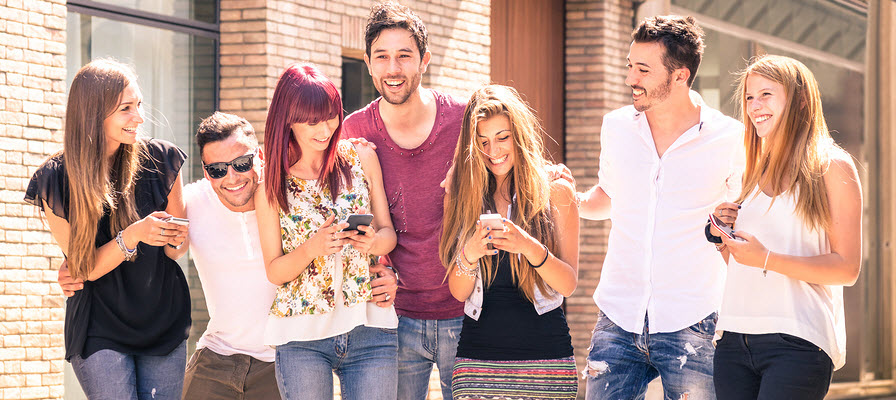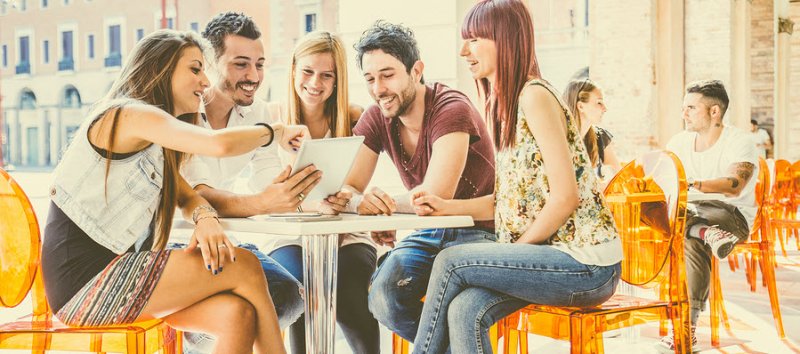Table of Contents
Key Takeaways
- 1. Social anxiety involves intense fear and avoidance of social situations, impacting mental clarity and overall quality of life.
2. Imbalances in neurotransmitters like serotonin, dopamine, GABA, and norepinephrine significantly contribute to social anxiety.
3. Natural nootropics such as L-Theanine (which promotes relaxation), Ashwagandha, Bacopa Monnieri, Rhodiola Rosea, and Magnesium effectively lower stress and ease anxiety symptoms without typical pharmaceutical side effects.
4. Natural beta-blocker alternatives like Magnesium and Potassium can manage physical symptoms of anxiety, such as rapid heartbeat and trembling.
5. Combining targeted nootropics can enhance confidence, calm nerves, and improve social performance, creating long-term relief from social anxiety.
What is Social Anxiety?
If you feel inadequate, embarrassed, inferior or humiliated. And it prevents you from going out, meeting new people, or generally messes with your mental energy and quality of life – nootropics can help.
 Social anxiety is a form of anxiety. And according to one study affects at least 14% of people living in the U.S.[i] I have a feeling that that estimate is far too low and not an accurate estimate of what’s really going on in our community.
Social anxiety is a form of anxiety. And according to one study affects at least 14% of people living in the U.S.[i] I have a feeling that that estimate is far too low and not an accurate estimate of what’s really going on in our community.
You are dealing with social anxiety if you tend to avoid going into any situation where you feel you may be negatively judged or evaluated. Back in the day, they used to call these things ‘phobias’. In this case, it was “social phobia”.
People with social anxiety often remain in a state of high alert, even after the social situation has ended, making it difficult to relax and regain peace of mind.
In this post, you’ll find out why prescription drugs often do not succeed in taming your symptoms. Here you’ll learn about some natural options that may work better for your social anxiety symptoms.
Use the “Table of Contents” above if you’d like to skip down to nootropic supplement suggestions so you can get started right away.
What Causes Social Anxiety?
Social anxiety can be caused by a number of cognitive issues that can wreak havoc with your emotional regulation and anxiety levels:
Genetics: If you have a family history of anxiety, depression, or related mood disorders you are more likely to experience social anxiety. Genetic susceptibility can influence the structure and sensitivity of brain cells and networks involved in fear and emotional processing.
Brain chemistry: Neurotransmitter imbalances often play a key role in the development of social anxiety. Low levels of serotonin and GABA can lead to reduced mood stability and poor stress regulation. Dopamine dysregulation may reduce motivation and heighten feelings of self-consciousness. Elevated norepinephrine can create a hyper-alert, fight-or-flight state that amplifies social tension.[ii]
Personality traits: Traits such as behavioral inhibition, heightened sensitivity to rejection, and high neuroticism contribute to an overactive response to perceived social threats. If you have low self-confidence or high levels of self-criticism you are particularly prone to anxiety in social settings.
Environment and experiences: Traumatic social experiences—such as bullying at school, exclusion, or embarrassment—can create associations between social interaction and emotional pain. Overprotective or overly critical parenting can also foster social avoidance or dependence.
Cognitive patterns: People with social anxiety often engage in negative self-talk, catastrophizing, and overgeneralization. You may mentally rehearse potential failure or judgment before social events, reinforcing or anticipating anxiety and avoidance behaviors.
These risk factors contribute to overactivation of the amygdala (your brain’s emotional threat detector) and under activation of your prefrontal cortex (which helps regulate and rationalize fear responses).
This neural imbalance creates a feedback loop where social threats feel exaggerated and difficult to control, perpetuating social anxiety symptoms.
In these situations, the body’s stress response is triggered, activating the fight-or-flight mechanism and leading to physical symptoms like increased heart rate, sweating, and emotional distress.
What Does Social Anxiety Feel Like?
 In social settings, individuals with SAD experience:
In social settings, individuals with SAD experience:
Physical symptoms: Rapid heartbeat, trembling, sweating, blushing, nausea, shortness of breath, and muscle tension.
Cognitive symptoms: Persistent worry about being negatively evaluated or appearing foolish.
Emotional symptoms: Overwhelming feelings of dread, fear, shame, or humiliation.
Behavioral symptoms: Avoiding eye contact, speaking at inappropriate times or not speaking at all, or avoiding social gatherings.
In severe cases, these symptoms can become debilitating and significantly interfere with daily functioning.
These symptoms often lead to feelings of isolation or underperforming in public roles because of fear of scrutiny.
How does social anxiety work in the brain? Neuroscience breakdown
Social anxiety is rooted in neural circuitry involving:
- Amygdala hyperactivity: Over-sensitive to negative social cues, like criticism or rejection.[iii]
- Prefrontal cortex under-regulation: The medial prefrontal cortex normally dampens amygdala responses; weak top-down control means heightened anxiety in social settings.[iv]
- Neurotransmitter imbalances:
- GABA: Main inhibitory neurotransmitter; low GABA activity causes over-arousal.[v]Serotonin: Important in mood and anxiety regulation; imbalance contributes to heightened social fear.[vi]Dopamine: Drives reward and motivation; low levels can reduce confidence and exacerbate negative self-focus.[vii]Norepinephrine: Heightened stress/fight-or-flight response in social contexts.[viii]These neurotransmitters and brain regions are all components of the central nervous system, which coordinates the body’s response to social stress.
- Stress hormones: Elevated cortisol worsens neural sensitivity to social interactions specifically.[ix]
SAD reflects overreactive threat detection and insufficient neural regulation, leading to anxiety symptoms when faced with social interactions.
 Nootropics for Social Interactions
Nootropics for Social Interactions
Navigating social interactions can be challenging for those who experience social anxiety, but the right nootropics can make a significant difference.
Nootropics for social anxiety are designed to support both mental and bodily health by targeting the underlying anxiety symptoms that make social situations feel overwhelming.
These supplements work by enhancing cognitive function, reducing stress levels, and promoting a sense of calm, which can help you feel more at ease during social interactions.
Some of the best nootropics for social interactions include L-Theanine, Rhodiola Rosea, and Bacopa Monnieri.
L-Theanine, found naturally in green tea, is well-known for its ability to promote relaxation without causing drowsiness, making it easier to engage in conversations and group activities.
Rhodiola Rosea helps the body adapt to stress, supporting a balanced mood and improved cognitive function even in high-pressure social settings.
Bacopa Monnieri, another powerful adaptogen, has been shown to reduce anxiety symptoms and support memory and mental clarity, which can be especially helpful when you need to think on your feet.
By incorporating these nootropics for social anxiety into your routine, you may notice various subtle improvements in your ability to handle social situations. Whether you’re attending a meeting, giving a presentation, or simply socializing with friends, these supplements can help reduce anxiety, boost cognitive performance, and make social interactions feel less daunting.
 What are the best nootropics to reduce social anxiety symptoms?
What are the best nootropics to reduce social anxiety symptoms?
Many natural nootropic supplements have evidence supporting their anti-anxiety effects.
In addition, many of these nootropics are also valued for their cognitive enhancement properties, improving memory, focus, and decision-making.
L‑Theanine
L-Theanine is an amino acid found in green tea. It helps reduce cortisol, increases brain levels of GABA, serotonin, dopamine, and boosts alpha brain waves and theta brain waves .
Clinical trials (100–150 mg 3-times per day) using an L-Theanine supplement shows stress relief, lowered heart rate, and reduced anxiety in social situations.[x]
Ashwagandha
An Ayurvedic adaptogen. Ashwagandha lowers cortisol and increases the sensitivity of GABA receptors which helps reduce stress levels and less social anxiety.
Clinical studies have shown Ashwagandha can repair and even reverse damage caused in the brain caused by chronic anxiety and stress. Recommended Ashwagandha extract dosage for general anxiety is 300 mg twice per day.
Bacopa Monnieri
Bacopa Monnieri is an herbal adaptogen that has been used since ancient times to reduce anxiety, depression and stress. It protects your neurons and balances neurotransmitters.
Bacopa Monnieri has a significant anxiolytic (anti-anxiety) effect. It appears to modulate brain levels of the neurotransmitter serotonin. This has an effect on mood regulation.
Research at Banaras Hindu University in India showed Bacopa Monnieri as effective for reducing symptoms of anxiety as the benzodiazepine drug lorazepam.[xi]
Recommended dosage of Bacopa Monnieri containing 20% bacosides is 750 mg per day.
Rhodiola Rosea
Rhodiola Rosea activates AMPA receptors in your brain. Which helps decrease depression and stress-related mood swings, reduces fatigue, stimulates energy and alertness and boosts cognition.
Rhodiola Rosea boosts mood by influencing serotonin and norepinephrine levels in your brain, and the feel-good opioids like beta-endorphins.[xii]
Recommended dose of Rhodiola Rosea extract is 150 – 200 mg per day.
Phosphatidylserine (PS)
Phosphatidylserine (PS) helps lower cortisol which is effective in relieving stress.
Many clinical trials with Phosphatidylserine (PS) have shown improvements in working- and long-term memory, recall, logic and even speech. Attention span increases while using Phosphatidylserine (PS). And motivation, socialization and initiative all increased when using Phosphatidylserine (PS) as a nootropic.[xiii]
Recommended Phosphatidylserine (PS) dosage is 300 mg per day.
GABA precursors and analogues
GABA
Clinical studies show that boosting GABA with a supplement relieves anxiety, stress, and boosts the production of alpha brain waves.[xiv] Recommended dosage of PharmaGABA is 250 mg per day.
Taurine
Taurine modulates GABA and glycine receptors in the brain which helps treat anxiety.[xv] Recommended Taurine dosage is 500 – 2000 mg per day.
Aniracetam, Noopept (Racetam family)
Aniracetam
Aniracetam can reduce anxiety, depression and fear. And increase sociability. It works by its effects on dopamine and serotonin receptors in your brain. Improving verbal fluency.[xvi] Recommended dosage for Aniracetam is 750 mg twice per day.
Noopept
Noopept boosts Alpha and Beta brain wave activity.[xvii] You become calmer and more creative. It’s easier to go into a flow state. And you are prone to making innovative and resourceful decisions. Recommended Noopept dosage is 10 – 30 mg per day.
L‑Tyrosine
L- Tyrosine is a precursor to dopamine and norepinephrine, boosting mental clarity, mood and confidence during stressful situations.[xviii] Recommended L-Tyrosine dosage is 500 mg twice per day.
Magnesium (especially L-Threonate)
Magnesium is a precursor to the synthesis of GABA, dopamine and serotonin which stabilizes mood, and supports cognitive function.[xix]
Magnesium L‑Threonate is particularly neuroactive and consistent daily use can help reduce prolonged anxiety. Recommended dosage of Magnesium L-Threonate is up to 1,000 mg per day
Kava
Kava seems to provide a calming effect by increasing the number of GABA-a receptors. And Kava inhibits norepinephrine reuptake. Clinical trials show short‑term anxiety relief comparable to prescription anxiolytics.[xx]
Kava extracts have also been seen to bind to GABA, dopamine, serotonin and opiate receptors as well. This implies that more of each neurotransmitter is available to your brain since their associated receptors are blocked or inhibited by Kava.
Most research shows there is little to no evidence to support the notion of liver damage when using Kava. For example, one large review out of the University of Melbourne included 24 clinical studies.
One of the researchers stated, “Of the 435 clinical trial participants taking Kava supplements in our review, some at high doses, no liver issues were reported. Therefore, the current review supports the conclusion that liver toxicity is indeed a rare side effect.”[xxi]
Look for a Kava extract called “WS1490”. For anxiety and other cognitive issues use 300 mg of this extract daily. Preferably split into three 100 mg doses. One dose in the morning, one in the early afternoon and the last in the evening.
 Nootropic Supplements Alternatives to Beta Blockers
Nootropic Supplements Alternatives to Beta Blockers
Beta blockers (e.g., propranolol) reduce physical anxiety by blocking adrenergic receptors—but many natural options offer milder effects:
Magnesium
Magnesium acts like a beta blocker, reducing stress-induced heart rate and blood pressure. See Magnesium above for all the ways this mineral will boost cognitive performance.
Potassium
Potassium channels in your brain are involved in serotonin regulation. And how serotonin is used to reduce feelings of guilt, helplessness, hopelessness, low self-worth and even suicide.[xxii]
You need adequate levels of potassium for serotonin to work and do its job. Even small decreases in optimal potassium levels can result in social and generalized anxiety.
What are the best natural alternatives to SSRIs, MAOIs & other anti‑anxiety drugs?
For you if you are looking for alternatives to prescription treatments like SSRIs or benzodiazepines:
Ginkgo biloba is another natural supplement that may help regulate serotonin levels and reduce anxiety and is often included in herbal nootropic stack for its safety and effectiveness.
St. John’s wort
St. John’s wort inhibits the uptake of serotonin, dopamine, GABA, glutamate and norepinephrine. Inhibiting the neuronal uptake of these neurotransmitters can have a profound effect on depression and mood.[xxiii]
And St. John’s wort moderates the genes controlling the function of your HPA-axis which is directly related to symptoms of anxiety disorder, social anxiety, and stress responses.
St. John’s wort has been shown to be as effective as many antidepressant medications. Recommended dosage for St. John’s wort extract (Perika®) for social anxiety is up to 900 mg per day.
Holy Basil
Holy Basil increases levels of dopamine, and serotonin, and reduces epinephrine, norepinephrine, and monoamine oxidase.[xxiv]
On study found that Holy Basil may be useful in the treatment of General Anxiety Disorder in humans and may be a promising anxiolytic agent”.
Research shows Holy Basil as effective in treating depression as the tricyclic antidepressant Tofranil and and Valium for treating social anxiety. Recommended dosage for Holy Basil extract for social anxiety is 300 – 2,000 mg per day.
Passionflower
Passionflower supports healthy GABA levels in your brain. As a nootropic it provides an anxiolytic effect without the unwanted side effects of anti-anxiety meds.[xxv]
One mechanism involves the GABA system and a GABAa (benzodiazepine) receptor which is the binding site of benzodiazepines, and which regulate chloride flow through ion channels. Studies show the anxiolytic activity of Passionflower is due to Passiflora apigenin and chrysin which are partial agonists of the same GABAa receptors.
Recommended dosage of Passionflower for social anxiety is 250-1,000 mg per day. Larger doses should be divided into 2 or 3 smaller doses during your day.
CBD Oil
CBD oil has been shown in the lab and through practical user experience to provide anti-anxiety and antidepressant effects. Reducing anxiety in those with social anxiety disorder. And as an antidepressant by enhancing serotonin and glutamate signaling via 5-HT1a.[xxvi]
A double-blind, placebo controlled trial conducted in Brazil worked with 10 patients diagnosed with social anxiety disorder. One group received 400 mg of CBD while the control group took a placebo. The researchers concluded that CBD was effective in reducing anxiety.[xxvii]
Safety and Efficacy of Nootropics
When considering nootropics for social anxiety, it’s important to prioritize both safety and efficacy. Clinical trials have shown that nootropics like L-Theanine, Rhodiola Rosea, and Bacopa Monnieri are generally safe and well-tolerated, with a low risk profile and minimal side effects for most people.
These supplements have demonstrated effectiveness in reducing anxiety symptoms, improving cognitive function, and promoting relaxation, making them valuable tools for those seeking natural support for social anxiety.
However, everyone’s body and brain functions are unique, and you may want to consult with a healthcare professional before starting any new nootropic supplement—especially if you are currently taking prescription drugs. A healthcare professional can help you monitor any potential interactions or side effects.
And keep an eye on things like blood pressure and sleep quality when using nootropics for social anxiety. Regular monitoring ensures that your supplement regimen support both your mental and bodily health without causing unwanted effects.
Taking a thoughtful and informed approach, you can safely and effectively use nootropics to reduce anxiety symptoms and improve your overall well-being.
The World is a Better Place After Eliminating Social Anxiety
Imagine a world where social anxiety no longer holds you back from enjoying your life to the fullest.
Nootropic supplements are a strong alternative to many anti-anxiety medications currently prescribed by doctors. And promoted by the Big Pharmaceutical companies.
I encourage you to try some of the supplements I reviewed in the article above. Try them one-at-a-time until you find one or two that works. All it takes is a day or two to try each nootropic supplement to see if you get any relief from your social anxiety symptoms.
But a very strong word of caution – if you are currently using any prescription anti-anxiety or antidepressant medications. Or any medications for that matter. Research each nootropic including side effects and prescription drug interactions before using them.
You can eliminate social anxiety once-and-for-all with nootropics. If you do your research. And are willing to experiment until you find the one or two that is right for you.






Join The Discussion - 230 comments
Sandra
February 2, 2026
Hi David: I’m helping out a cousin who has a 16 yr old kid doing self-harm. Before doing an appt with you, what test process do you suggest to determine what supplements needed? Here is her recent description of what’s happening…
“I don’t think Jessie self harms for the typical reasons other teens do. I believe Jessie does it as an avoidance tool. They swallow something and create predictable chaos that removes them from a stressful situation. Hence, our focus is “talk to us about what you need” vs doing big dramatic and dangerous behaviors” This has been going on for about 4 years. On regular meds, not sure what exactly. Anyway, if you could share best test to take to find out what part of brain may not be working as well as possible, that’d be helpful. Also, have you consulted families with this depth of challenge? Thanks, Sandra
David Tomen
February 6, 2026
Sandra, I do my best to avoid this type of consultation. The primary reason is I’m not qualified. This type of behavior is out of my depth even after over 20,000 hours of reading clinical studies and writing about what I discovered.
Likely the best explanation I’ve found is this study authored by a couple of universities in Indonesia which I think is easy to understand here: https://pmc.ncbi.nlm.nih.gov/articles/PMC11969049/
Amit
December 12, 2024
Hello David,
I am facing a lot of trouble of Anxiety and social Anxiety. whenever facing a group of people my brain stop working and while speaking my voice is stuttering , and one of more issue is recall. I forget many things and can’t express myself in better way . pls advise best suppliment which helps. my age is 35yrs. Using ALCAR and Fish oil right now but my mood is low and can’t feel good and not enjoying a moment
David Tomen
December 16, 2024
Amit, I recall one guy I did a consultation with and he had the same problem. I recommended Lemon Balm extract and that worked for him.
If Lemon Balm extract does not work for you then take a look at the rest of the list of adaptogens on this page and experiment until you find something that works: https://nootropicsexpert.com/top-7-nootropic-adaptogens-to-conquer-anxiety-and-stress/. I’m afraid I cannot be any more specific with this because I don’t know enough about you and your situation and history. That could only be solved by having a consultation with me.
Stefanie
November 22, 2024
I’m not sure if there’s a glitch with the website but my comment keeps disappearing.
Thanks for this article, David! I’ve had social anxiety most of my life. My voice and hands get shaky and my brain stops working. With recent testing, all of my neurotransmitters were found to be low except for glutamate. I have also struggled with chronic hypoglycemia for decades which also contributes to the social anxiety. I’ve been taking progesterone to raise cortisol levels and thus raise blood sugar; but this in turn made anxiety worse with the raised cortisol levels. Cortisol levels were high while on progesterone, but low when not on it. My problem is that most nootropics lower blood sugar. Can you recommend any nootropics to try for this unusual problem?
David Tomen
November 23, 2024
Stefanie, no one is “deleting” your comments. They’re not published until I approve them. It’s the only way I can keep trolls out.
Increased cortisol is going to cause anxiety. Lowering cortisol often reduces anxiety. Which you can do with L-Theanine 100 mg 3-times per day. And Phosphatidylserine (PS) 300 mg per day.
But that may be only part of your solution. If all of your neurotransmitters are low that will definitely result in anxiety. See this article on anxiety to learn how to increase each neurotransmitter: https://nootropicsexpert.com/best-nootropics-for-anxiety/
Stefanie
November 24, 2024
Thanks so much, very helpful David! Do you also have any recommendations for my hypoglycemia problem? Like I said, I’ve found that most nootropics lower blood sugar which makes it difficult to correct my neurotransmitter problem. Are there some that actually raise blood sugar? Do you know of any correlation between neurotransmitters and blood sugar?
David Tomen
November 24, 2024
Stefanie, the only nootropic supplement that I know of that I have reviewed on Nootropics Expert to helps lower blood sugar is Berberine. When you say “most nootropics” which are you referring to?
My area of expertise is in brain health and cognition. Other than my comment about Berberine I can’t help you with increasing blood sugar. Maybe someone will see this thread and can make a suggestion.
Stefanie
November 25, 2024
Thanks, David. There were so many nootropics and other supplements with research showing their blood sugar lowering effects that I made a spreadsheet. It’s easier to say that ALL except for DHA, niacin, iodine, and maybe ginkgo biloba lower blood sugar.
David Tomen
November 26, 2024
Stephanie, I’ll need take your word for it because I take a lot of supplements. And I still struggle to keep my blood sugar normal